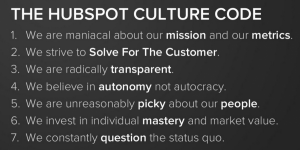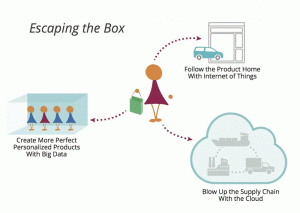Sean Hargrave, August 3, 2015
Sometimes marketers can ask far too many questions and become far too involved in the nitty gritty when it comes to research. The latest GfK figures are a case in point. There’s nothing wrong with asking the UK public how they feel about the economy, but drawing too many conclusions from the results is problematic.
To begin with, the average consumer is not an economist, and so they can only lick their finger and put it up in the air to give you a gut feel. At a time of austerity, you will probably find most people are rightly concerned about the economy. Cuts are starting to bite and the news headlines are full of the Eurozone’s woes. But if you ignore our huge debt for a moment and look at growth and employment rates, things are looking — dare we admit — pretty peachy, all things considered.
So surely the only question that really needs to be answered by consumers is whether they feel confident enough to make a big purchase. Here again, researchers manage to snatch doom and gloom out of the jaws of positivity. The likelihood of buying a major purchase is down from last month, but it’s actually up year-on-year. The point is, people are a lot more likely to feel empowered to make a major purchase this year rather than last, it’s just they were even more upbeat last month.
For the market researchers out there scratching their heads as to why this should be, let me take a wild guess. The figures are from July, a time of paying for annual vacations, taking time off to look after the kids, taking them out to overpriced attractions and paying for summer camps and other organised activities. In other words, it’s a pricey old month made even worse by the tax man coming after half-yearly payments. So, back in the real world, away from Excel spreadsheets and questionnaires, it hardly takes a Sherlock Holmes to understand why people’s likelihood to buy a new washing machine, car or tv would dip in July when there are so many other expensive activities to pay for.
Remember, it was retail analysts who were scratching their head at Christmas when sales levels were down and had to reconcile their earlier statements that Black Friday wasn’t going to impact Christmas sales with the reality at the cash register. It clearly did. UK behaviour has now changed and Black Friday weekend is where many gifts will be bought instead of the last few days before Christmas. It really is that simple.
There is a motto in the Hargrave household that my kids should never expect common sense to be all that common and they should never underestimate the ability for very smart people not too see the blooming obvious.
Talking about their latest figures, a GfK executive even suggested that people are seeing what’s going on in the Eurozone and are getting their own houses in order. I ask you now to decide whether or not the average person considers what Greece is going through before buying a smart TV? Again, I’d suggest that July and August bring in a lot of extra expense, and even so, people are still more likely to shell out on a big purchase than this time last year.
So, from what I can see, brands shouldn’t read too much in to a “dip” in consumer confidence which is actually a major boost year-on-year, coming as it does at a very expensive time for all families.
(139)
Report Post







